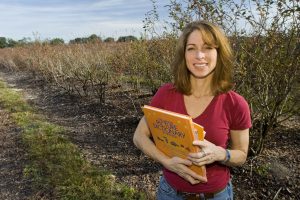It was early August 2003 and Maria Coady was unpacking books in her new Norman Hall office in her first week working as an assistant professor in bilingual and ESOL (English Speakers of Other Languages) education at the UF College of Education. That’s when a voluble group of several undergrad students appeared in her doorway and posed a question that would shape the direction of Coady’s career and life forever.
“They were asking for help, wanting to learn how to teach English to a small group of immigrant families living in rural northcentral Florida,” Coady recalled, being somewhat taken aback by her unofficial student welcoming committee but impressed by their moxie and enthusiasm.
“From that moment on,” she said, “I became embedded in rural educational settings with immigrant English-learning children and their families, as well as the teachers striving to ensure their students’ educational success.”
Coady’s arrival on campus couldn’t have come at a better time, coinciding with a steady rise each year in the number of non-English speaking students being placed in mainstream classrooms throughout Florida.
Fast forward 15 years to the present and Coady is now recognized as a leading authority and innovator in shaping how teachers-in-training learn to educate English-learning students while still meeting the needs of other students in mainstream classrooms.
Her research advances recently earned Coady a prestigious appointment to the Irving and Rose Fien Endowed Professorship at the College of Education. The two-year post, worth $20,000 in salary supplements and research funds, supports veteran faculty members with a track record of successful research aimed at helping at-risk learners at high-poverty schools.

Maria Coady





